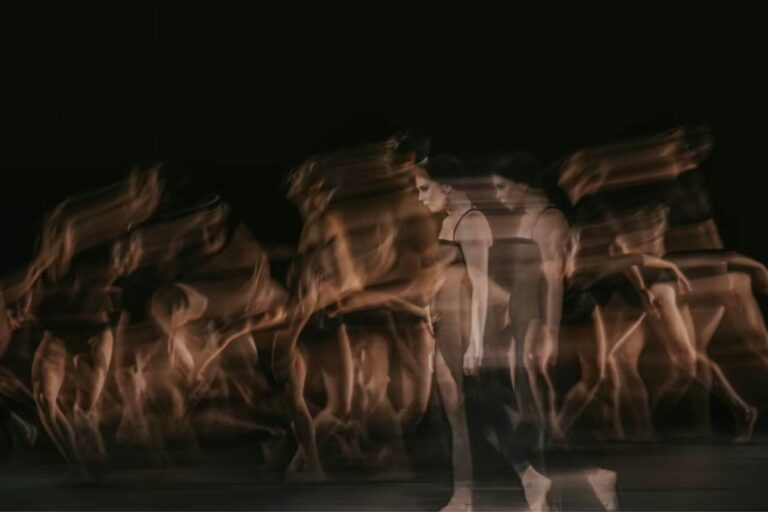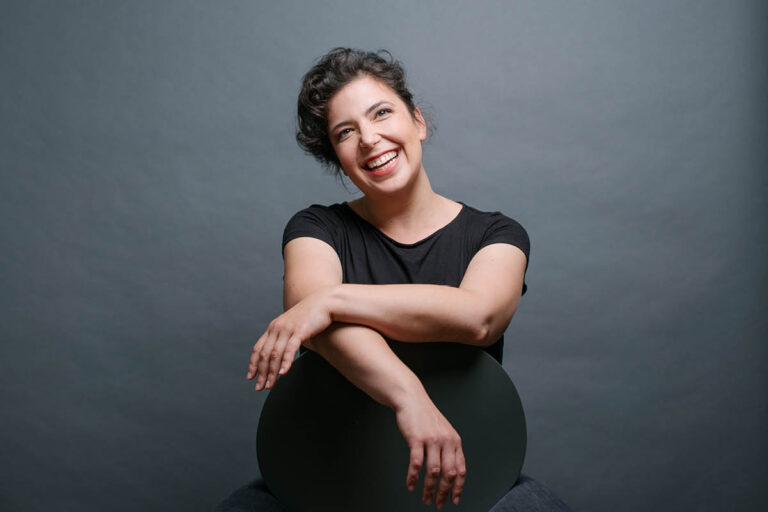Belvoir’s new adaptation of Virginia Woolf’s Orlando: A Biography is a charmer – a light-stepping piece of theatrical rough magic that dances its way across four centuries, from Shakespeare’s time to our own.
Co-adapted by Elsie Yager and director Carissa Licciardello, Orlando opens with a circle of snowflakes on an otherwise empty stage (designed by David Fleischer). The lights go down and everything feels ready for some kind of necromantic spell – an impression heightened by reflective panels whose shimmering adds a visual echo to the actors’ movements.

Amber McMahon (centre) in Orlando. Photo © Brett Boardman
We meet Orlando (Shannen Alyce Quan, the first of four trans or non-binary actors to play the role) as a beardless youth, a young nobleman being inducted into the court of Queen Elizabeth I (Amber McMahon in the first of many well-drawn comic roles). Her Majesty finds herself unexpectedly charmed by this ardent, even brazen young poet.
Awarded his roller skates – as good a symbol of social mobility as any – Orlando ventures beyond the court and into teeming London, where, on a frozen river Thames, he meets a Russian princess (Emily Havea) whose...
Continue reading
Get unlimited digital access from $4 per month
Already a subscriber?
Log in










Comments
Log in to start the conversation.